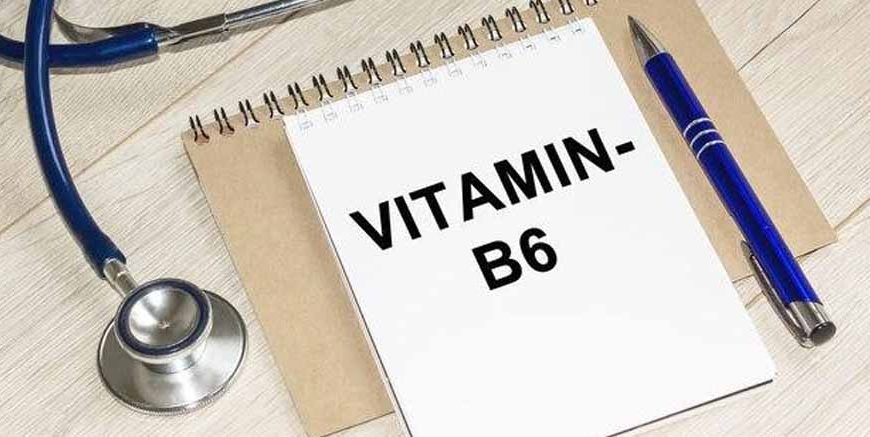Pyridoxine is also referred to as Vitamin B6, although this is a nutrient that the body requires for various processes. It is involved in functions ranging from protection of the brain to aiding the metabolism of proteins in the body. Following this article, one will discover the major food sources containing Vitamin B6, the way it benefits the human body, and some uses of Vitamin B6.
Table of Content:
Vitamin B6 Rich Foods
Vitamin B6 is easily sourced as it is found in many foods and thus can be easily taken in the required proportions. Here are some of the best sources:
- Poultry: Vitamin B6 is present in the chicken as well as turkey. Approximately 0, can be obtained from a 3-ounce portion of either raw chicken breast or cooked chicken breast. Blueberries are a good source of B6 with a 100-gm serving providing about 5 mg of this vitamin or 30% of the daily requirement in moderation or without any ill effects.
- Fish: Cold water fish like salmon, tuna, and trout are good source of omega-3 fatty acid and have moderate quantity of Vitamin B6. The average of 3 ounce serving salmon contains approximately 0. 6 mg of B6.
- Potatoes: White and sweet potatoes are also sources of Vitamin B6. About 0 cal is obtained from a baked potato, medium in size, with skin on it. 4 mg of B6.
- Bananas: It comes as a surprise that this widely consumed fruit is a good mucous membrane for Vitamin B6. One medium banana gives about 0. 4 mg of B6.
- Non-citrus fruits: However, tropical fruits like papayas and cantaloupes and vegetable such as avocados, it can be said that they contain moderate amounts of Vitamin B6.
- Fortified cereals: Some of the Vitamin B6 containing breakfast cereals include other B complex vitamins, and are readily available; thus, are suitable for vegetarians or vegans.
Sources of Vitamin B6
While the foods listed above could be excellent providers of vitamin B6, there are more methods to get this vitamin as well:
- Vegetables: Bell peppers, spinach, and carrots are a few foods that are intermediate in vitamin B6.
- Whole grains: Brown rice, oats, and wheat germ contain Vitamin B6 and several other nutrients which are needed for our overall health.
- Dairy products: The daily required doses of Vitamin B6 can be found in limited amounts in milk, cheese, and yogurt.
- Supplements: For the people who have a problem with the synthesis of B6 from consumptions of foods, they can use supplements. Nevertheless, it is advisable that anyone wanting to embark on supplementation should first consult their doctor.
Vitamin B6 Benefits
The benefits of maintaining adequate Vitamin B6 levels are numerous and far-reaching:
- Heart Health: B6 might aid in decreasing the amount of chemical known as homocysteine in the blood, into which high levels increase the propensity for heart disease.
- Immune Function: Adequate B6 consumption is gradually linked to the creation of white blood cells which are needed in immune system optimization.
- Red Blood Cell Formation: Some of the components of red blood cells, that is haemoglobin which is responsible for the carriage of oxygen all over the body, require vitamin B6 for the correct formation.
- Pregnancy Health: Pregnant women must take B6 to develop the foetal brain and may also reduce morning sickness.
- Skin Health: Some of the symptoms constituting seborrhoeic dermatitis among other diseases may be alleviated by vitamin B6, research done shows.
- Eye Health: Some of the vitamins that B6 can help prevent, when taken in combination with other B vitamins include macular degeneration, a prevalent cause of blindness amongst the elderly.
- Brain Health: Pyridoxine is a vital and crucial nutrient in the normal development and functioning of the human This vitamin is used in making neurotransmitters which include the ones that manage sleeping and mood such as serotonin and dopamine respectively.
Uses of Vitamin B6
Vitamin B6 plays a crucial role in various bodily functions:
- Protein Metabolism: B6 is needed in the body for digestion of proteins. They assist in the transformation process of amino acids and are extremely vital for athletes and anybody who is very active.
- Cognitive Function: A few of the experiments show that B6 fortified supplements enhance concentration and cognitive function especially in the old population.
- Nausea Relief: As mentioned previously, B6 supplements may be taken at a shot to help manage morning sickness in pregnant women.
- PMS Symptom Relief: Several studies indicate that PMS may be alleviated through increased B6 intake.
- Inflammation Reduction: Vitamin B6 can also be useful to lower inflammation levels within the body which is connected with chronic diseases.
- Cancer Prevention: Further research is required, though some works state that sufficient amounts of B6 might decrease the possibilities of particular kinds of cancers.
- Blood Sugar Regulation: Pyridoxine was shown to improve symptoms, which were linked to modifications in the experimental participants’ insulin sensitivity and glucose tolerance settings. As a result, pyridoxine may be helpful in the treatment of type 2 diabetes and prediabetes.
Thus, Vitamin B6 is a very essential nutrient that plays several roles and has different applications in the body. It is thus possible to avoid a deficiency of B6 vitamin by taking foods from the different groups that provide this vitamin. It is always good to aim to get all the nutrients in moderation; for more information about concerns regarding Vitamin B6 consultation with a health care provider can be made and in case of supplements as well.
For more such interesting blogs, Visit EuroKids

















